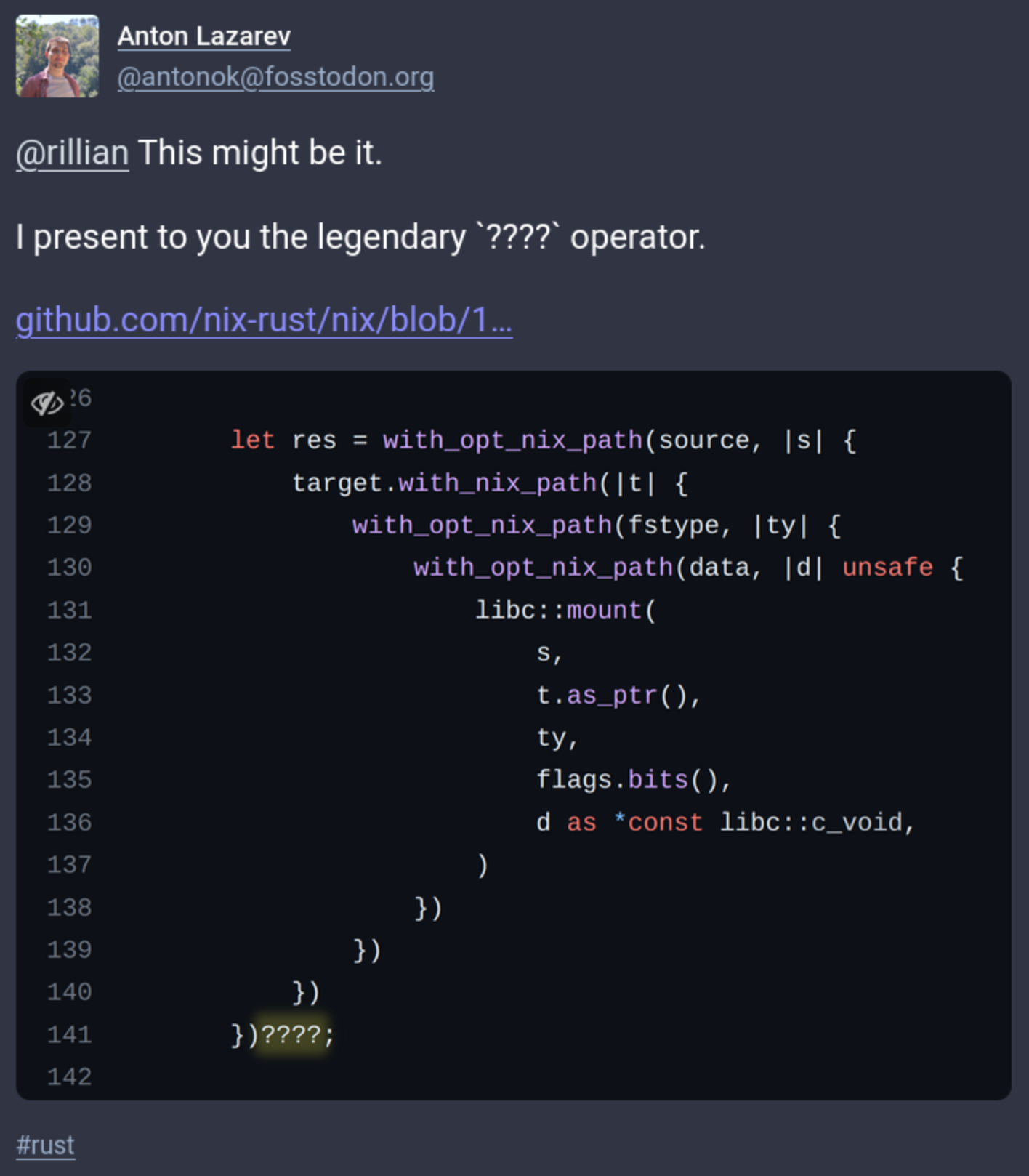this post was submitted on 27 Sep 2023
188 points (97.5% liked)
Rust
7666 readers
28 users here now
Welcome to the Rust community! This is a place to discuss about the Rust programming language.
Wormhole
Credits
- The icon is a modified version of the official rust logo (changing the colors to a gradient and black background)
founded 2 years ago
MODERATORS
you are viewing a single comment's thread
view the rest of the comments
view the rest of the comments

While funny, this also highlights part of why I like rust's error handling story so much: You can really just read the happy path and understand what's going on. The error handling takes up minimal space, yet with one glance you can see that errors are all handled (bubbled up in this case). The usual caveats still apply, of course ;)
I'm writing my Rust wrong... I have match statements everywhere to the degree that it's cluttering up everything.
If all you do in the
Err(e) => ...match arm is returning the error, then you absolutely should use the?operator instead.If the match arm also converts the error type into another error type, implement the
Fromtrait for the conversion, then you can use?as well.If you want to add more information to the error, you can use
.map_err(...)?. Or, if you're using theanyhowcrate,.with_context(...)?.You can also do
map_err, which is a bit cleaner while keeping the mapping obvious. If you really need to do some logic on error, extracting that to the calling function is often better.If the matches are causing too much nesting/rightward drift, then that could be an indicator that you're doing something wrong.
If it's the opposite, then you're probably doing something right, except maybe the code needs some refactoring if there is too much clutter.
If there isn't much difference, then it's a matter of style. I for example sometimes prefer to match on
bools in some contexts because it makes things look clearer to me, despite it being not the recommended style. I'm also a proud occasional user ofbool::then()andbool::then_some()😉Also, if you find yourself often wishing some API was available for types like
bool,Option, andResult, then you don't have to wish for long. Just write some utility extension traits yourself! I for example have methods likebool::err_if(),bool::err_if_not(),Option::none_or_else(), and some more tailored to my needs methods, all available via extension traits.Macros can also be very useful, although some people go for them too early. So if everything else fails to declutter your code, try writing a macro or two.
And it's worth remembering, there is no general rule, other than if the code is understandable for you and works, then you're probably okay irregardless of style. It's all sugar after all, unless you're really doing some glaringly wrong stuff.
Most likely you can get by with adjusting the return type and using a ? or maping to a type that you can use the ? on.